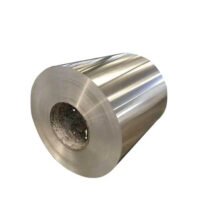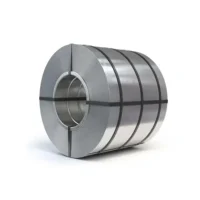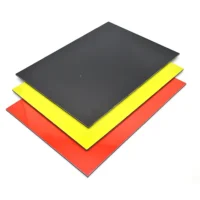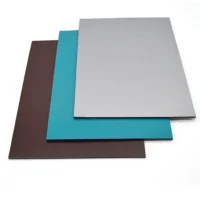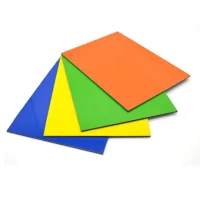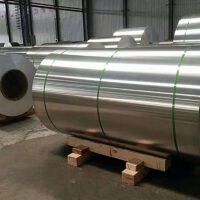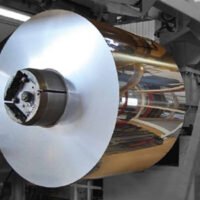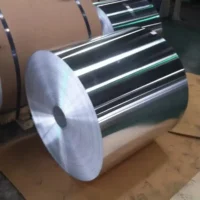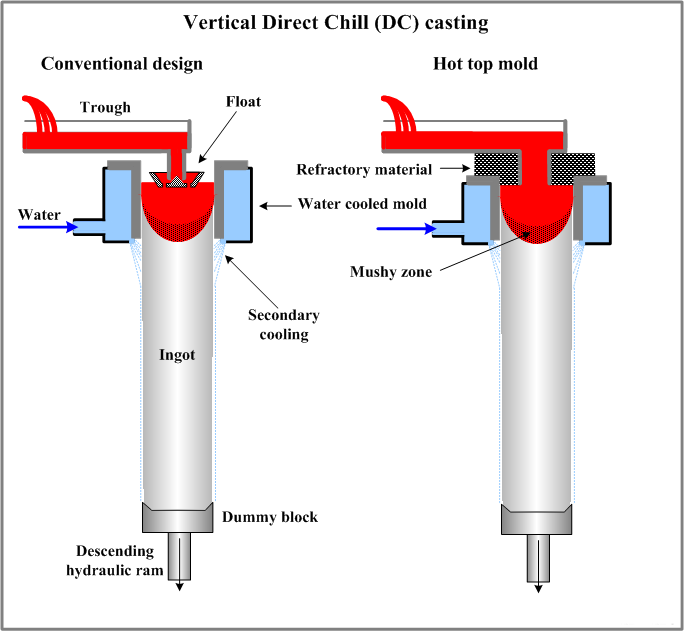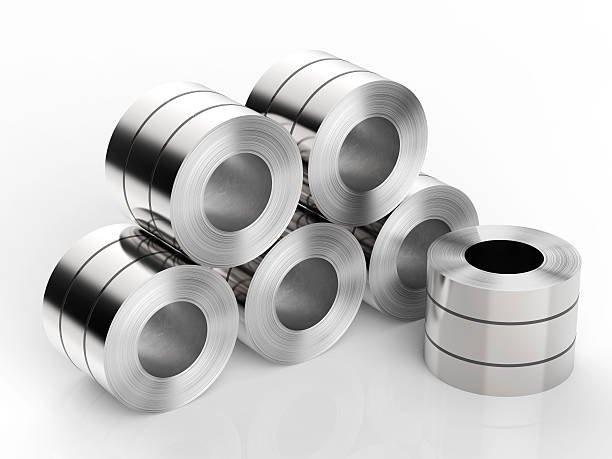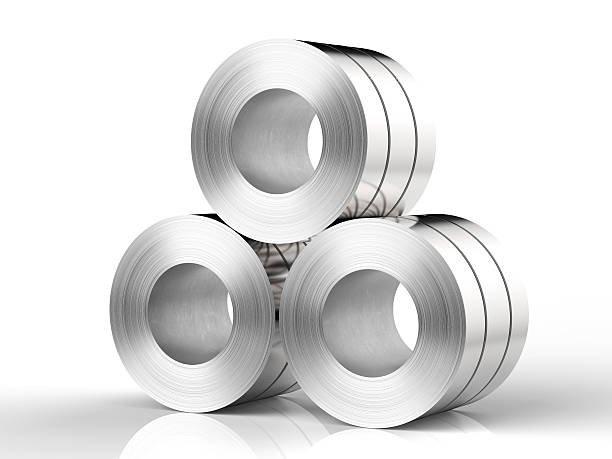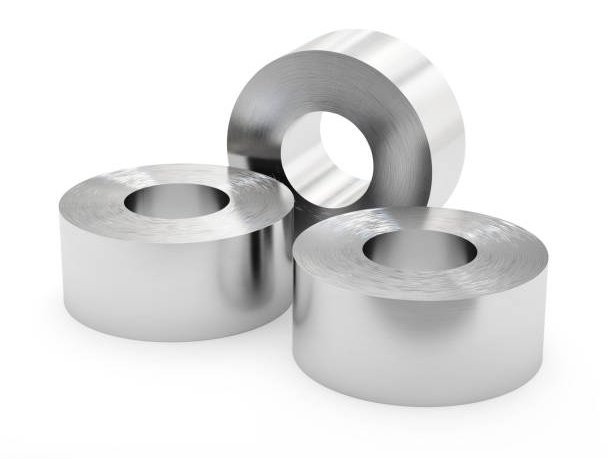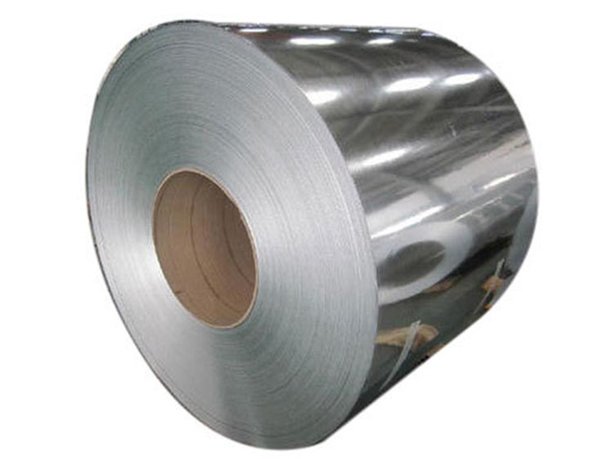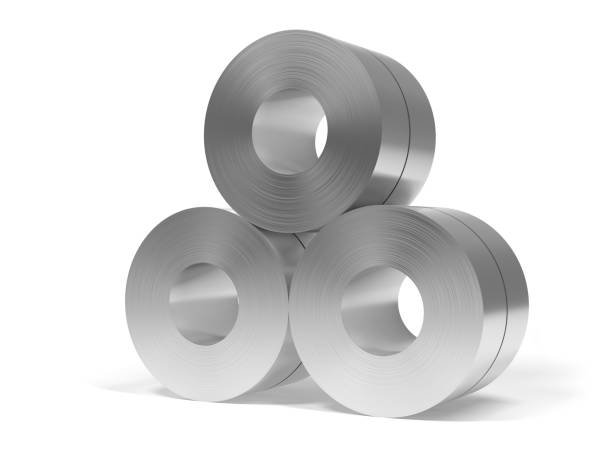3104 Aluminum Coil
3104 Aluminum Coil
Applications: Blinds, Lamp Cap Materials, Cans, Oxidizing Materials, Mobile Phone Battery Cases, Car Fuel Tanks, Liquid Crystal Backplanes, Cake Trays, Color Coating Aluminum Substrates, etc.
| Width: 100-2650mm | ||
| Thickness: 0.2-10mm | ||
| Length: Customizable as required | ||
| Temper: F,O,H12,H14,H16,H18,H19,H22,H24,H26,H28,H111,H112,H114, etc. | ||
| Mother Coil: DC or CC Aluminum Coil | ||
| Surface: Oxidation, Precoating, Mirror Finishing, etc. | ||
| Free Sample Size: A4 Paper Size | ||
| MOQ: 3-5T | ||
| Payment Terms: T/T, L/C, D/P | ||
| Delivery Time: Normally Within 15-30Days |
An aluminum coil is a rolled metal product calendered by a finishing mill and processed by drawing and bending angles without smooth flying shear. It is the raw material of aluminum strips and plates. The slitting equipment can cut the aluminum roll into strips, and the flattening equipment can make the aluminum coil into a sheet.
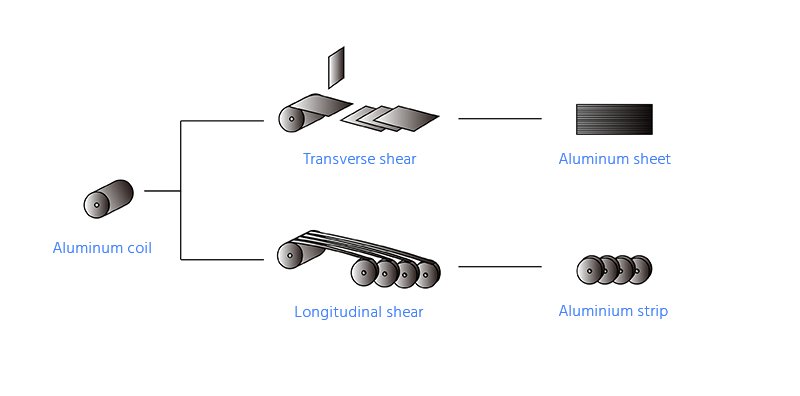
3104 aluminum coil properties
| 3104 Aluminum Coil Property | Value |
|---|---|
| Length | Customizable As Required |
| Width | 100mm-2650mm |
| Thickness | 0.2mm-10mm |
| Temper | F,O,H12,H14,H16,H18,H19,H22,H24,H26,H28,H111,H112,H114, Etc. |
| Application Market | Blinds, Lamp Cap Materials, Cans, Oxidizing Materials, Mobile Phone Battery Cases, Car Fuel Tanks, Liquid Crystal Backplanes, Cake Trays, Color Coating Aluminum Substrates, Etc. |
| Surface | Oxidation, Precoating, Mirror Finishing, Etc. |
| Free Sample Size | A4 Paper Size |
| MOQ | 3-5T |
| Delivery Time | Normally Within 15-30Days |
The 3104 aluminum coil produced by Wantai has various alloy states, including O, F, H12 to H112, and others. The thickness ranges from 0.2mm to 10mm, the widths from 100mm to 2650mm, and the lengths can be determined according to specific order requirements. Our 3104 aluminum coil has excellent mechanical properties, dimensional accuracy, and low error fluctuations, which can meet various high-precision machining needs and is very suitable for customers with strict material properties requirements.
The 3104 aluminum coil is a versatile and high-performance industrial deformation alloy material renowned for its exceptional formability, corrosion resistance, and weldability. Its adaptability to various industries, including aviation, automotive, shipbuilding, construction, and other fields, instills confidence in its versatility and makes it a popular choice.
3004 Aluminum Coil Chemical composition
The parameters of the 3104 aluminum coil and prepainted 3104 aluminum coil are identical to those of the International Alloy Designations System for 3104 Aluminum sheets.
| Chemical composition | Content(%) |
|---|---|
| Si | ≤0.60 |
| fe | ≤0.80 |
| cu | 0.05-0.25 |
| mn | 0.80-1.40 |
| Mg | 0.80-1.30 |
| cr | – |
| ni | – |
| zn | ≤0.25 |
| V | ≤0.05 |
| ga | ≤0.05 |
| ti | ≤0.10 |
| zr | – |
| al | Reminder |
At the same time, 3104 aluminum coil is also a high-end commercial lightweight anti-rust aluminum material with various alloy states (such as O for annealed, F for as fabricated, H12 to H28 for work-hardened, H112, etc.). Each alloy state offers unique properties, making 3104 aluminum coil suitable for various applications. With its unique alloy composition, meticulous smelting process, and advanced production technology, the 3104 aluminum coil not only inherits the advantageous properties of pure aluminum but also significantly enhances the material’s mechanical and processing properties. This advanced technology ensures the product’s quality and performance.
3104 Aluminum Coil DC / CC Temper designation (For Reference)
| Temper | Definition |
|---|---|
| O | Annealed |
| H12 | Strain Hardened, 1/4 Hard |
| H14 | Strain Hardened, 1/2 Hard |
| H16 | Strain Hardened, 3/4 Hard |
| H18 | Strain Hardened, Full Hard |
| H22 | Strain Hardened and Partially Annealed, 1/4 Hard |
| H24 | Strain Hardened and Partially Annealed, 1/2 Hard |
| H26 | Strain Hardened and Partially Annealed, 3/4 Hard |
| H28 | Strain Hardened and Partially Annealed, Full Hard |
Moreover, the 3104 aluminum coil offers many possibilities with its diverse and flexible surface treatment options. From anodizing to electroplating, polishing to painting, and other processes, these varied treatments can give products a wide range of appearances and performance characteristics, providing exciting customization options. For example, the surface color-coated polyester coating (PE) and fluorocarbon coating (PVDF) have bright colors and strong adhesion and significantly improve the product’s corrosion and weather resistance. In addition, the mirror color coated aluminum coil, through rolling, polishing, and other processes, the surface of the plate to achieve the mirror effect, and then with the roller coloring technology, can form a variety of gorgeous colors, widely used in the field of decoration.
3104 Aluminum Coil Features
3104 aluminum coil possesses several advantageous properties, making it a versatile material for various applications:
- Excellent Formability: The 3104 aluminum coil demonstrates superb formability, allowing for the efficient processing of complex shapes through stamping, drawing, or deep drawing. Its flexibility and plasticity ensure stable material properties, making it a reliable choice for diverse applications.
- Strong Corrosion Resistance: This aluminum coil exhibits strong corrosion resistance. It has good self-rust prevention ability and a naturally formed oxidation layer on the surface that effectively prevents metal oxidation rust. This makes it a reliable choice for long-term use in humid and corrosive environments.
- Good Weldability: The 3104 aluminum coil offers good welding performance, allowing for connections using various welding methods such as TIG and MIG welding. The welding joint strength is high, with no cracks, ensuring overall product performance.
- Diverse Surface Treatment: The coil supports anodizing, electroplating, polishing, painting, and other surface treatment methods to meet customers’ needs for aesthetics and corrosion resistance.
- Excellent Electrical Conductivity: The 3104 aluminum coil’s non-magnetization and low spark sensitivity make it suitable for electromagnetic interference-sensitive applications. Additionally, its up to 41% electrical conductivity makes it ideal for areas requiring good electrical conductivity.
- Recyclable: The 3104 aluminum alloy is a recyclable material, aligning with the requirements of green environmental protection and sustainable development. The production and use of this alloy also emphasize energy saving and emission reduction. Waste generated can be recycled through regenerative smelting and other technologies to reduce resource waste and environmental pollution.
We provide all the data from authoritative third-party testing agencies, including AQSIQ, the International Organization for Standardization, etc. These institutions have comprehensively evaluated the performance of 3104 aluminum coils through strict test methods and evaluation standards. Customers can inquire about the relevant report or contact us for more detailed information.
With the increasing global focus on environmental protection, sustainable development, and continuous advancements in science and technology, the 3104 aluminum coil is expected to find broader applications in various fields. In the future, the crucial roles of stakeholders, such as manufacturers, suppliers, and potential clients in areas like new energy vehicles, green buildings, and electronic appliances, will significantly impact the development of the following aspects of the 3104 aluminum coil:
- Green Production: Adoption of green production technology for the 3104 aluminum coil in the future is imperative and presents a significant opportunity. By reducing energy consumption and emissions during production and enhancing resource utilization, we can contribute to a more sustainable future while potentially reducing costs.
- Technological Innovation: Technological innovation is not just a pivotal driver but a cornerstone for the future of the 3104 aluminum coil. We are enthusiastic about bolstering our research and development efforts to create new alloy materials with enhanced performance, lower costs, and more excellent environmental protection, showcasing our dedication to progress and sustainability.
- Market Expansion: Actively exploring domestic and international markets, especially those for new energy vehicles, green buildings, electronic appliances, and other emerging fields, to promote the optimization and upgrading of product structure.
- Intelligent Manufacturing:
- Advancing the application of intelligent manufacturing technology in the production of aluminum coils.
- Enhancing production efficiency and ensuring product quality stability.
- Addressing the individual needs of customers.
In summary, the 3104 aluminum coil, as a high-performance alloy material, will continue to play a pivotal role in various fields. We highly value our customers and eagerly anticipate collaborating with them to collectively drive the application and development of the 3104 aluminum coil while remaining steadfast in our commitment to society’s sustainable development.
Differences between DC Casting and CC Casting
The thickness of 0.7 mm refers to the thickness of aluminum coils, commonly used in various industries for roofing, cladding, and fabrication applications. So, comparing the quality of aluminum coils with a 0.7 mm thickness through some details on DC and CC Casting could help us get a clear and reasonable result.
DC (Direct Chill) Casting:
- The direct chill casting process produces a magnificent and uniform aluminum grain structure.
- This fine-grain structure gives aluminum strength, formability, and corrosion resistance compared to other casting methods.
- Direct chill-casting aluminum coils are often used in applications that require deep drawing or complex forming, such as automotive body panels, heat exchangers, and food/beverage cans.
- The 0.7 mm thickness is on the thinner end for DC casting aluminum. However, this gauge is still suitable for many formed and fabricated components.
CC casting (Continuous Casting):
- Continuous Casting is a more economical process than DC casting.
- CC-casting aluminum billets, blooms, or slabs have a slightly larger grain structure than DC-casting. However, it is still suitable for a wide range of applications.
- CC-casting aluminum coils with a thickness of 0.7 mm are commonly used for general sheet metal fabrication, roofing, siding, and other building/construction applications.
- The 0.7 mm thickness provides a good balance of formability, strength, and lightweight properties for these types of uses.
In summary, DC-casting aluminum coils have superior mechanical properties and surface quality compared to CC-casting but at a slightly higher cost. Even so, neither DC nor CC-casting aluminum coils with a thickness of 0.7 mm can exhibit good flatness, surface quality, and dimensional tolerance and can be used in different applications depending on the project’s specific requirements.
The choice between the two kinds of production technology depends on the end product’s specific performance requirements, economic considerations for the specific application, and customer requirements. DC casting is preferred when superior formability and strength are needed. In contrast, CC casting is more economical for less demanding applications.
Advanced Color-Coated Process
Polyester-coated pre-coating Technology(PE Coating)
The polyester coating is a kind of anti-UV UV polyester resin coating; its primary component uses polymers containing ester bonds in the main chain as monomers, adding alkyd resin and an ultraviolet absorber. After baking polyester coating on the surface of aluminum (aluminum sheet, aluminum coil) many times, it forms a solid film with protection and decoration. The polyester coating protects color-coated aluminum products (aluminum sheets, aluminum coils) from exposure to the atmosphere due to temperature differences, freeze-thaw cycles, corrosive gases and microorganisms, ultraviolet radiation, wind, rain, frost, and snow.
In addition, the polyester coating can give color-coated aluminum substrate products rich color. According to gloss, the polyester coating can be divided into matte and highlight series. Therefore, the color-coated aluminum coil not only has good gloss and smoothness but also superior texture and feel and can also increase the sense of layer and three-dimensionality. It is especially suitable for interior decoration and advertising boards.
polyvinylidene difluoride coating technology(PVDF Coating)
Fluorocarbon coating is PVDF resin. It mainly refers to vinylidene fluoride homopolymer or vinylidene fluoride and other small amounts of fluorinated vinyl monomer copolymer coatings. The fluoric acid-base material with a fluorine/carbonization bond has a stable and firm chemical structure, which makes the physical properties of fluorocarbon coatings different from those of general coatings.
Fluorocarbon coatings can be divided into traditional fluorocarbon coatings and nano-fluorocarbon coatings according to the film formation structure of the surface. In 1965, the Pennwalt Chemical Company of the United States, for the first time, used fluorocarbon paint for the coating of indoor and outdoor aluminum in high-grade buildings, a wide range of color selectivity, solemn appearance, and durability for many magnificent curtain wall buildings around the world added luster.
In addition to the wear and impact resistance in terms of mechanical properties, it also shows excellent and long-term fading resistance and UV resistance in harsh climates and humid environments. After high-temperature grilling, the molecular structure of the coating is tight, and the machine has superior weather resistance. The coating manufacturer’s guarantee of the service life of the coating began to be 10 years, 15 years to guarantee more than 20 years.
American research institutions have tested and compared fluorocarbon, super, and general coatings. The samples of the coatings were exposed to hot sunlight in Florida, the United States, and exposed to the harsh environment of humid salty air for 12 years, which proves that the stability and durability of fluorocarbon coatings are 30%-80% higher than those of the other two coatings. Fluorocarbon coatings ensure that they can be used in various harsh environments. It is especially suitable for indoor and outdoor decoration in public places, commercial chains, exhibition advertising, and other decorations and displays.
If you need more specific information about aluminum coils, don’t hesitate to contact our sales team!
3104 Aluminum Coil Chemical Composition
| Chemical Element | Si | Fe | Cu | Mn | Mg | Cr | Ni | Zn | V | Ga | Ti | Zr | Each | Total | Al |
|---|---|---|---|---|---|---|---|---|---|---|---|---|---|---|---|
| Content (%) | ≤0.60 | ≤0.80 | 0.05-0.25 | 0.80-1.40 | 0.8-1.30 | – | – | ≤0.25 | ≤0.05 | ≤0.05 | ≤0.10 | – | ≤0.05 | ≤0.15 | Remainder |
3104 Aluminum Coil Technical Data
| Length | Customizable As Required |
| Width | 100-2650mm |
| Thickness | 0.2-10mm |
| Temper | F,O,H12,H14,H16,H18,H19,H22,H24,H26,H28,H111,H112,H114, Etc. |
| Application Market | Blinds, Lamp Cap Materials, Cans, Oxidizing Materials, Mobile Phone Battery Cases, Car Fuel Tanks, Liquid Crystal Backplanes, Cake Trays, Color Coating Aluminum Substrates, etc. |
| Mother Coil | DC or CC Aluminum Coil |
| Surface | Oxidation, Precoating, Mirror Finishing, Etc. |
| Free Sample Size | A4 Paper Size |
| MOQ | 3-5T |
| Payment Terms | T/T, L/C, D/P |
| Delivery Time | Normally Within 15-30Days |
3004 aluminum coil properties
| Physical Property | Value |
|---|---|
| Density | 2.73g/cm3 |
| Hardness Brinell | 20-30HB |
| Melting Point | 650°C |
| Thermal Expansion | 24 x10^-6 /°C |
| Thermal Conductivity | 237W/m.K |
| Electrical Resistivity | 0.0282 x10^-6 Ω.m |
| Mechanical Property | Value |
|---|---|
| Tensile Strength | ≥200 MPa |
| Compressive Strength | ≥200MPa |
| Yield Strength | ≥110MPa |
| Elasticity Modulus | ≥70Gpa |
| Elongation | ≥5% |
| Elongation at Break | ≥2.3% |
3104 aluminum coil Corrosion resistance
The corrosion resistance of 3104 aluminum coil in acid and alkali is roughly as follows
| Medium | Anti-corrosion Capability |
|---|---|
| Ocean Water | weak |
| Salt | weak |
| Organic Acid | Common |
| fluorine, chlorine, bromine, Lodine | Poor |
| hydrochloric acid, hydrofluoric acid, acetic acid | Poor |
| alkaline, ammonia water, Lime water | Poor |
| dilute sulfuric acid, dilute nitric acid | Poor |
| ammonia Gas, sulfurous gas | Good |
| Cold concentrated sulfuric acid, Cold concentrated nitric acid | Stable |
| petroleum, kerosene, ethyl alcohol, benzene, organic compound, etc | Stable |
Prepainted 3104 Aluminum Coil Applications
3104 aluminum coil, a lightweight metal material, stands out with its unique combination of properties, high strength, ease of processing, and corrosion resistance. This versatility makes it a preferred material across many industrial fields, including but not limited to:
Packaging Industry
3104 aluminum coil, because of its good punching and machining performance, has become the ideal choice of can lid and tank material. The lid material made of 3104 H19 aluminum coil has excellent surface quality and mechanical properties, which can ensure the sealing and durability of the can. Therefore, the 3104 H19 aluminum coil is very suitable for various beverages and food cans in addition to sparkling drinks, such as pet food, canned beef, eight precious porridge, etc.
In addition, 3104 aluminum coils can be widely used in producing oxidizing and color-coated aluminum coils, providing a rich choice of color and excellent corrosion resistance for packaging materials.
Building Industry
The 3104 aluminum coil is a highly cost-effective choice for roofing and exterior wall materials in the construction industry. Its lightweight, high strength, corrosion resistance, excellent weather resistance, and easy processing characteristics make it a practical and economical solution. After the surface color coating treatment, the 3104 aluminum coil ensures a service life of more than 50 years and significantly enhances the building’s stain resistance, beauty, and durability. This long-lasting performance makes it a valuable investment for building and decoration projects. Data show that it can help users save 30% of yearly maintenance costs.
Therefore, 3104 aluminum coils are used in the roof and wall systems of airport terminals, stations, large transportation hubs, public service buildings, shopping centers, and residential buildings.
Interior And Exterior Decoration
3104 aluminum coil is also widely used in decoration and electronic and electrical fields. For example, it can be used for road signs, the production of blinds, lamp caps, and other indoor and outdoor aluminum decorative products.
The 3104 aluminum coil used as the base material of color-coated aluminum coil impresses with its good coloring effect and strong adhesion. Its high reflectivity and good color adhesion make the decorative effect more beautiful and lasting, attracting potential customers with its aesthetic appeal. WanTai’s color-coated aluminum rolls have a service life of more than 50 years and significantly improve decorative pieces’ stain resistance, beauty, and durability.
Electronic And Electrical Industry
At the same time, in the electronic and electrical industry, the 3104 aluminum coil, because of its good electrical conductivity, non-magnetization characteristics, and low spark sensitivity, can effectively prevent electromagnetic interference, reduce flammability in particular environments, and improve product performance.
Therefore, 3104 aluminum coils are widely used to manufacture electronic product shells, liquid crystal backboards, and circuit boards. In addition, its workability and surface treatment processes, such as anodizing and electroplating, can also meet the multiple needs of customers with different aesthetics and functions.
Transportation Industry
In the field of transportation equipment, 3104 aluminum coils are often used in the manufacture of oil tankers, automobile fuel tanks, silos, and other equipment. With a long service life, these products provide users a sense of security and confidence. Mainly as the preferred material for the new energy power battery shell, its lightweight and high-strength characteristics help to improve the fuel efficiency of transportation equipment, vehicle endurance, and load capacity.
According to industry data, power battery housings made using 3104 aluminum coils can be up to 20% lighter than traditional materials while maintaining sound structural strength and safety.
In addition, the vehicle’s fuel efficiency and range have been significantly improved by 10%. At the same time, the corrosion resistance and easy processing characteristics of 3104 aluminum rolls are also used to make other parts of cars, trains, planes, and other vehicles, such as car body panels and body skins.
The above introduction shows that the 3104 aluminum coil is a high-performance aluminum alloy material with many application prospects and market demand in many industries. Its excellent performance and diversified application advantages support the innovative development of various sectors. Please feel free to contact us for orders.
Last but not least, we offer flexible, customized services to produce 3104 aluminum coils of different sizes, thicknesses, surface treatments, and performance requirements according to our customers’ specific needs. At the same time, we provide professional technical support and after-sales service to ensure that customers get timely technical support and solutions during the use process.
WanTai Aluminum Industry Product List
| Aluminum Alloy Series | Aluminum Grade |
|---|---|
| 1000 Series | 1050, 1060, 1070, 1100, etc. |
| 2000 Series | 2014, 2017, 2024, 2A11, 2A12, 2A14, etc. |
| 3000 Series | 3003, 3004, 3005, 3104, 3105, 3A12, etc. |
| 4000 Series | 4004, 4032, 4043, 4047, 4A03, 4A11, 4A13, 4A17, etc. |
| 5000 Series | 5005, 5052, 5052A, 5052B, 5059, 5083, 5086, 5182, 5252, 5454, 5754, 5A02, 5A03, 5A05, 5A06, 5M49, 5M52, etc. |
| 6000 Series | 6005, 6005A, 6060, 6061, 6063, 6082, 6101, etc. |
| 7000 Series | 7005, 7050, 7075, 7A04, 7A09, etc. |
| 8000 Series | 8011, 8076, 8077, 8079, 8176, 8177, 8276, 8280, etc. |
| Types | Aluminum Coils, Aluminum sheets, Aluminum foils, Aluminum strips, Checkered Plates or diamond plates, etc. |
| Length(mm) | customizable as required. |
| Width(mm) | 40mm-2650mm |
| Thickness(mm) | 0.006mm-800mm |
| surface | oxidation, Precoating, wire drawing, Mirror Finishing, embossing, etc. |
| payment | T/T, L/C, D/P, etc. |
| package | Wrap in plastic or kraft paper with Moisture-proof desiccant. Pack in fumigated wooden cases and brackets. |
Different Specifications of Aluminum Coil Parameters
The following are examples of different specifications of aluminum rolls and their weight and length information for Reference:
| specification | Thickness(M) | Area(m2) | Weight(Kg) |
|---|---|---|---|
| 0.5mmx1mx1000m | 0.0005 | 1000 | 1,350 |
| 0.6mmx1mx1000m | 0.0006 | 1000 | 1,620 |
| 0.8mmx1mx1000m | 0.0008 | 1000 | 2,160 |
| 1.0mmx1mx1000m | 0.0010 | 1000 | 2,700 |
| 1.5mmx1mx1000m | 0.0015 | 1000 | 4,050 |
| 2.0mmx1mx1000m | 0.0020 | 1000 | 5,400 |
| 2.5mmx1mx1000m | 0.0025 | 1000 | 6,750 |
| 3.0mmx1mx1000m | 0.0030 | 1000 | 8,100 |
Interested In Working With WANTAI?
Please insert your contact information into the following contact form and let us know how we can help you! We will contact you as quickly as possible.
People Also Searched for 3003 Aluminum Coil
Aluminum Coil Uses, Aluminum Coil Exporter In China, Aluminum Coil Price In India, Aluminum Coil, Aluminum Coil Price Per Kg, Aluminum Coil Hs Code, Aluminum Coil Supplier In Delhi, 3003 Aluminum Coils Suppliers, CC Casting Aluminum Coil, Al 3003 Coil, Aluminum Alloy 3003 Coils Stockholders, Aluminum 3003 Coils Exporters, Aluminum 3003 Coils Manufacturers, Aluminum Alloy 3003 Coil Size, Aluminum Alloy 3003 Slitting Coil, Aluminum Alloy 3003 Coils Price List India, 3003 Aluminum Coils, Al Alloy 3003 Coil, Aluminum 3003 Coils, 3003 Aluminum Coil Distributors, Aluminum Alloy 3003 Coils, Aluminum Coils Suppliers, Aluminum Alloy 3003 Coil Supplier, Aluminum 3003 Coils Exporters, Aluminum 3003 Slitting Coil Manufacturers, Aluminum Alloy 3003 Coil Price, Aluminum Alloy 3003 Coils Distributors, Aluminum Alloy 3003 Coil, Aluminum Alloy 3003 Coils Stock, Aluminum 3003 Coil Exporter, 3003 Aluminum Coil price, 3003 Aluminum Coil size, 3003 Aluminum Coil for sale, Aluminum 3003 chemical composition, 3003 H14 Aluminum, etc.

